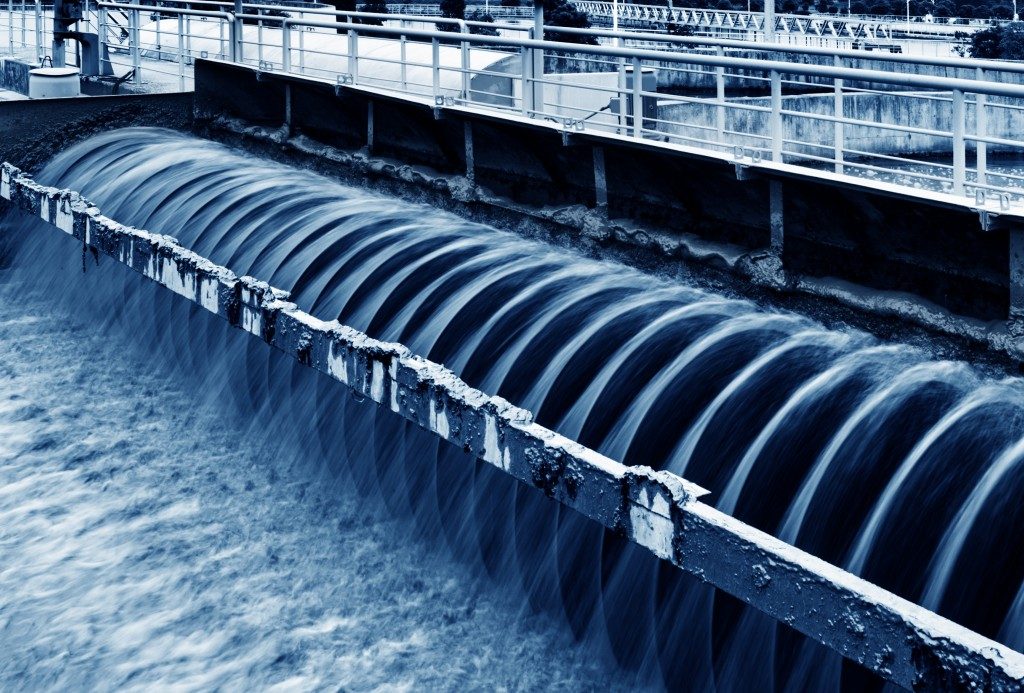All activities that involve water create wastewater. As the demand for water grows, the quantity of wastewater produced and its pollution content are also increasing worldwide. Most developed and highly urbanized countries release vast amounts of untreated wastewater into the environment, causing damaging consequences to human health, the environment and ecosystems.
The effects of releasing untreated wastewater
Although wastewater is a critical part of the water management cycle, major companies often see proper water treatment and disposal as a burden instead of a responsibility. Now, the results of this neglect have manifested on the environment.
Releasing untreated wastewater into the environment leads to the pollution of groundwater, surface water and soil. Once it reaches large bodies of water, wastewater can travel downstream and corrupt aquifers, compromising freshwater sources.
Despite the introduction of household sanitation facilities in 1990, wastewater still poses a risk to the sanitation and health of people in countries where these services are inaccessible. Some middle- and low-income countries use untreated wastewater for food production and contaminated surface water for drinking and recreational purposes. The World Health Organization estimates that each year, about 842,000 people die from drinking contaminated water and inadequate handwashing and sanitation facilities.
Global water crisis
The prevalence of health issues caused by contaminated water reveals the demand for safer, cleaner water. The water crisis is an imminent threat to countries all over the world. Two-thirds of the world’s entire population or about 4 billion people experience water scarcity at least one month per year. By 2030, the intense water scarcity can displace at least 700 million people worldwide.
One of the greatest causes of the water crisis is climate change, which is causing severe effects on the earth’s water cycle dynamics. The frequency and severity of floods and droughts are affecting river basins worldwide and are causing adverse socio-economic consequences in countries. One of the countries intensely impacted by climate change is Syria, which had the worst drought in 900 years.
Water quality is also a factor of water scarcity since the pollution of water makes it unsafe for human consumption. The continuous discharge of untreated sewage water, agricultural run-off and untreated industrial wastewater all contribute to the degradation of water quality.

Wastewater as an untapped resource
In 2017, U.N. published a study that discusses the potential of using wastewater as an untapped resource. With the rapid growth of demand for clean water for consumption, wastewater is slowly gaining momentum as a reliable alternative source of water. This shifts the need from wastewater treatment and disposal to ‘reuse, reduce and resource recovery”.
But to utilize wastewater as a water source, industries must improve their wastewater management systems and increase the quantity of properly treated wastewater. Developing countries release 70 per cent untreated industrial waste that contaminates water supplies. Wastes from industries can be treated on-site through industrial water recycling facilities and can be reused immediately, or they can be processed through the municipal wastewater system.
The goal is to go beyond pollution mitigation and seek value from wastewater. Recycling water can increase the quantity of potable water and lessen the reliance on non-renewable resources. like fossil groundwater. It’s also in line with U.N.’s Sustainable Development Goal 6: Clean Water and Sanitation.
Industries can also convert wastewater into energy. Sewage treatment systems extract the sludge from wastewater and treat it to maximize the methane it produces. The treated waste undergoes a process to convert it to methane-rich gas or biogas, which can serve as an energy source. The treatment systems can also convert the solid remnants from the wastewater into nutrient-rich “digestates” that can be used as fertilizers.
The global water crisis is only worsening year after year. Employing sustainable methods, such as wastewater recycling, can not only abate the pollution of water sources, but it can also provide potable water to countries all over the world.

